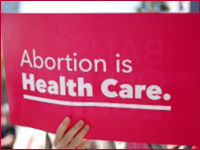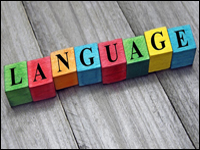In light of US President Donald Trump’s major announcement today that the United States will take over the Gaza Strip and relocate the Palestinian population to neighbouring Arab countries, members and supporters may recall our Newsletter of July last year which covered this very subject. We believe this is of such profound significance, that we have decided to republish the article:
Lessons from Lausanne
1 July 2024
 The story is told of a divine messenger who appeared to a peasant farmer.
The story is told of a divine messenger who appeared to a peasant farmer.
“You have been chosen”, said the messenger. “Whatever you wish for, it will be granted.”
The farmer was shocked but beamed with anticipation.
“There is only one condition,” the messenger added. “Whatever you wish for, your neighbour will be granted double.”
The farmer’s smile disappeared, for he despised his neighbour.
“So, if I ask for a ton of gold, my neighbour will get two tons?”
“That is correct,” said the messenger.
“And if I ask for an extra 1,000 acres of land, my neighbour will get 2,000?”
“You understand well,” the messenger added.
The farmer thought in silence for quite some time, as he could not bear the thought of his neighbour prospering in any way.
Suddenly, his face brightened. “I’ve got it!”, he exclaimed.
“Put out one of my eyes.”
As the war between Israel and Hamas rages, I thought about this story.
Hamas and its Palestinian supporters are the peasant farmer. They despise Israel so much that they would rather sacrifice their own future than see Israel prosper in any way.
As has been observed many times, whilst the Israelis (and we here in the West) love life, Hamas and its supporters love death.
So, how does one reconcile such diametrically opposed positions?
In short, you can’t.
In January 1923, the League of Nations ‘Convention Concerning the Exchange of Greek and Turkish Populations’ was signed in Lausanne, Switzerland.
The agreement stated that all Christians living in the newly established Republic of Turkey were to be re-located to Greece, and all of Greece’s Muslims were to move to Turkey.
The agreement specified that the populations being transferred would lose their original nationality – along with any right of return – and instead would become citizens of their new homeland.
The population transfers, which affected about one-and-a-half million people, imposed enormous pain on their respective populations, but was generally viewed as a success. Relations between Turkey and Greece improved immensely following the transfers.
Around that same time, the British came up with what might be called a ‘Two–State Solution’ to the Arab-Jew problem it had inherited in British Mandate Palestine. In an attempt to resolve the problem, the British allocated approximately 80,000 sq km of land to the Arab population in an area to be known as Trans-Jordan (now simply called Jordan), and 20,000 sq km to the Jews. In 1948, the Jews declared independence over their portion of land and the state of Israel was born.
Following the creation of Trans-Jordan in 1921, during the next 40 years, and despite being surrounded by numerous wealthy Arab states, those Palestinians who had not re-located to Jordan but had remained in what were known as the Gaza Strip and the West Bank were kept in abject poverty. They were effectively stateless. Egypt controlled Gaza and Jordan controlled the West Bank. Neither state showed any interest in improving the lives of the Palestinians under their control, and certainly showed no interest in creating a separate state for them.
Following its spectacular victory in the 1967 war – which Egypt, Syria and Jordan had started (overwhelmingly supported by the Palestinians of Gaza and the West Bank) – in what must surely be the biggest missed opportunity since its founding, Israel should have done what the League of Nations did in 1923 and relocated the remaining Palestinian populations of Gaza and the West Bank to Jordan. Jordan was, after all, overwhelmingly Palestinian.
But as Israel has been doing since biblical times, it ignored calls to remove its enemies and prevent them from attacking it in the future.
The Lausanne Convention endorsed the practice of relocating ethnic and religious populations and established the legal right of states to re-locate large populations on the grounds of what they called ‘otherness’.
Another example was the partition of India in 1947 which saw millions of Muslims relocated to the newly established state of Pakistan and millions of Hindus relocated to India.
Speaking at the Lausanne Convention, French Prime Minister Raymond Poincaré said, “the mixture of populations of different races and religions has been the main cause of troubles and of war and that this un-mixing of peoples would remove one of the greatest obstacles to peace”.
As the Bible states, “This is an hard saying, who can hear it?” (John 6:60 KJV).
As with many of the world’s most intractable problems, we often end up being faced with two options – a bad option, and a worse option. There are no ‘good’ options.
In Israel’s case, the bad option – it would attract a great deal of international criticism – would be to do what the Greeks and Turks did in the 1920s and relocate the Palestinians.
A worse option would be to allow them to remain.
Allowing them to remain would require either the Americans, the Europeans or the United Nations – none of which is likely to do it – or the Israeli military, to occupy Gaza indefinitely.
Under any of these circumstances, Hamas would re-form and re-build.
That can’t be allowed to happen.
Relocation of the Palestinian population by absorbing them into other Arab countries is the least worst option.
Thank you for your support.
 Heinrich Heine’s ominous line, “Those who burn books will in the end burn people,” is one of the most quoted in modern history. It appears in his 1821 play, Almansor.
Heinrich Heine’s ominous line, “Those who burn books will in the end burn people,” is one of the most quoted in modern history. It appears in his 1821 play, Almansor. The Black by-election is over and, as widely reported, the seat switched quite spectacularly from the Liberal Party to Labor in a massive 13 per cent swing.
The Black by-election is over and, as widely reported, the seat switched quite spectacularly from the Liberal Party to Labor in a massive 13 per cent swing. Over 40,000 Australian children are currently in government-sponsored care. Approximately 30,000 have been there for more than two years. Fewer than 200 were adopted.
Over 40,000 Australian children are currently in government-sponsored care. Approximately 30,000 have been there for more than two years. Fewer than 200 were adopted. “Mine eyes have seen the glory of the coming of the Lord
“Mine eyes have seen the glory of the coming of the Lord In William Jacob’s 1902 short story, The Monkey’s Paw, former Army officer Sgt Major Morris gives a mummified monkey’s paw he had brought back from India to his old friend Mr White.
In William Jacob’s 1902 short story, The Monkey’s Paw, former Army officer Sgt Major Morris gives a mummified monkey’s paw he had brought back from India to his old friend Mr White. Former Greens Senator Lidia Thorpe, for example, was first out of the blocks wearing her green Hamas headband in solidarity. Likewise, Greens Senator Sarah Hanson-Young is happy to show her support for the Palestinian cause.
Former Greens Senator Lidia Thorpe, for example, was first out of the blocks wearing her green Hamas headband in solidarity. Likewise, Greens Senator Sarah Hanson-Young is happy to show her support for the Palestinian cause. John Lydon (aka Johnny Rotten of the Sex Pistols) is a clever guy.
John Lydon (aka Johnny Rotten of the Sex Pistols) is a clever guy. What you call something is very important.
What you call something is very important. So said former New Zealand Prime Minister, Jacinda Ardern.
So said former New Zealand Prime Minister, Jacinda Ardern.